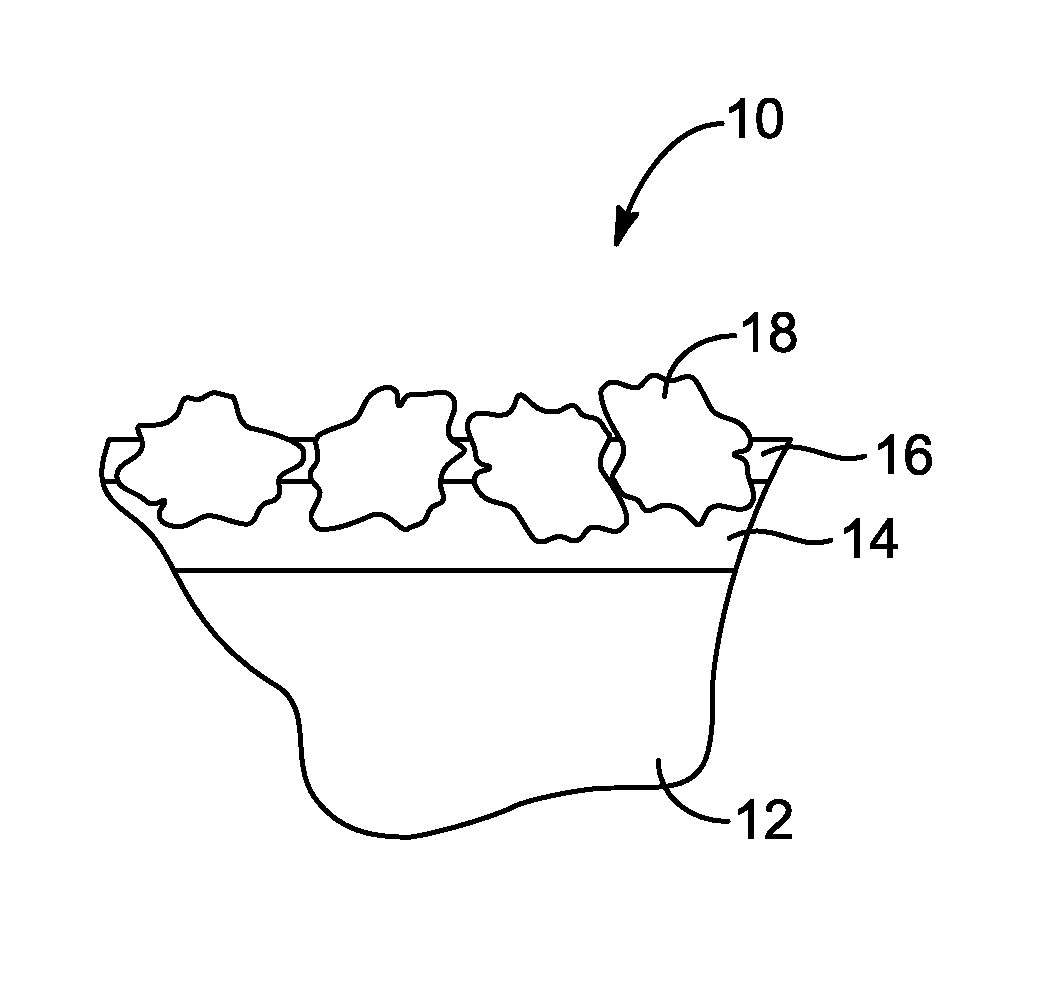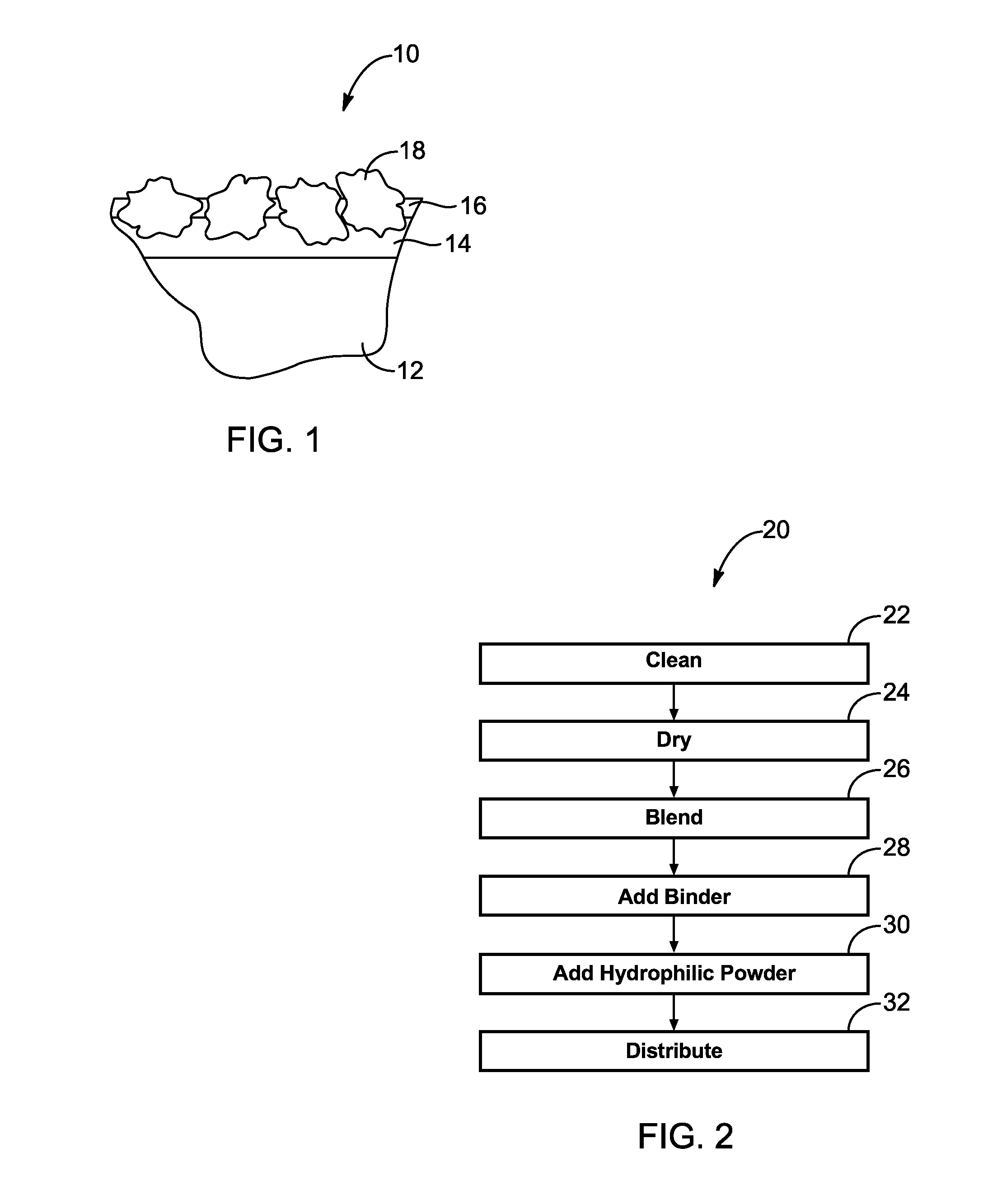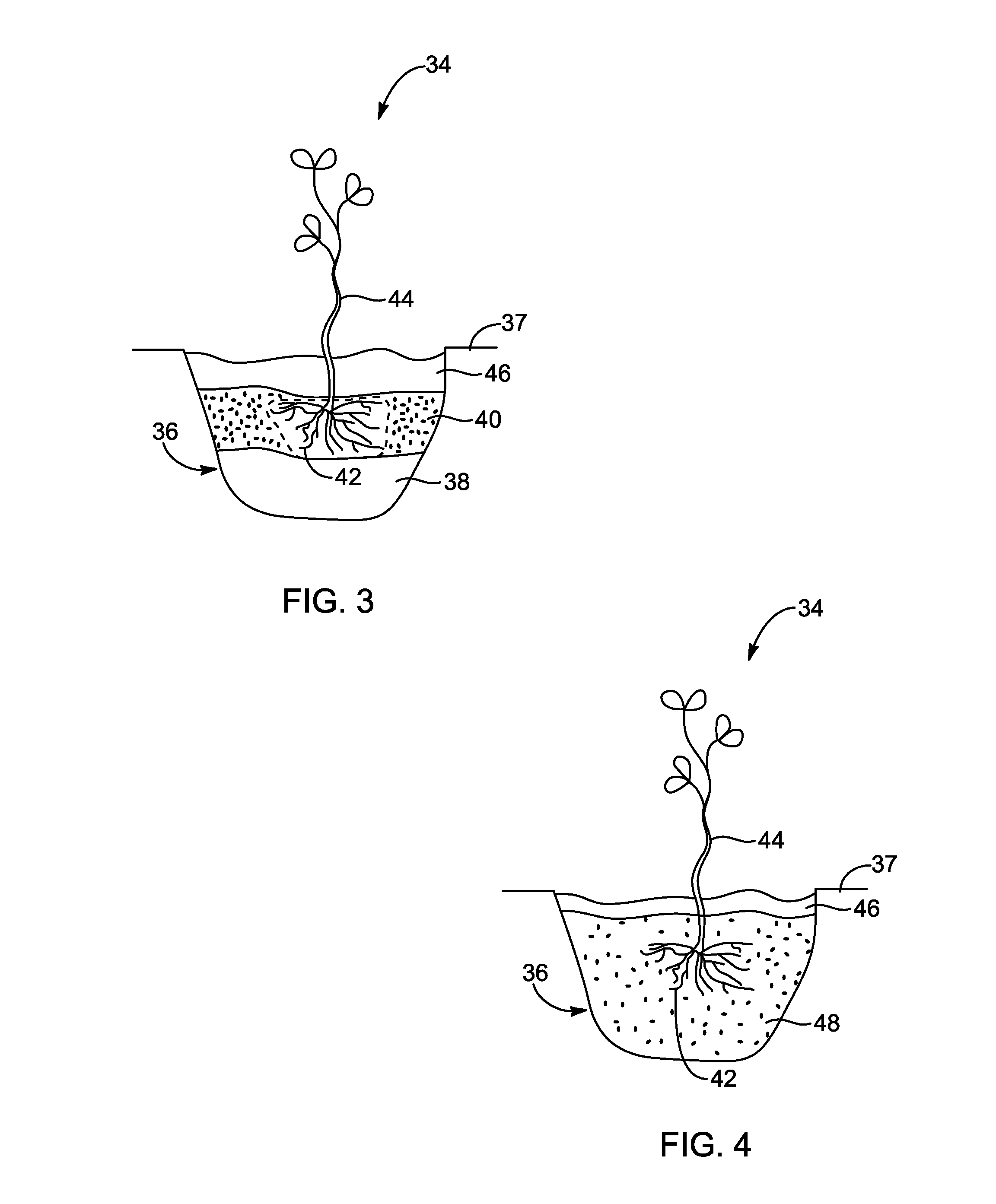Seed-delivered, soil-amendment method and composition
a technology of soil amendment and seed, applied in the field of seed delivery, can solve the problem of more sparse distribution of seeds, and achieve the effect of reducing or eliminating any tendency to adhere and promoting germination
- Summary
- Abstract
- Description
- Claims
- Application Information
AI Technical Summary
Benefits of technology
Problems solved by technology
Method used
Image
Examples
example 1
[0084]In this example, perennnial ryegrass was planted. A control planting or control sample used normal or conventional seed, commercially available and not treated in accordance with the invention. The other test groups contained seed 12 coated by one embodiment of a process in accordance with the invention. Coating ratios in the samples of coated seeds 12 were in three groups. One group had a 1% ratio, another had a 2% ratio, and another had a 5% ratio.
[0085]The seeds 12 in the various samples were treated the same, with periodic watering and consistent light. Photos were taken of the progress of the seeded plots of soil. Ryegrass has a very rapid germination. The difference in germination rate and time was not dramatic. Therefore no particular note was made of that difference between samples in this example test.
[0086]However, In an evaluation made 11 days after planting, plants were plucked up from each group, cleaned and compared. Stalk growth was improved in all the test samp...
example 2
[0088]In this observation, the samples were evaluated for their response to stress, induced by reduced watering. All the test samples show reduced stress, typically displayed as wilting and dehydration, compared to the stress of the untreated control sample. Moreover, not only did all the test samples improve over the control, but the resistance to stress improved with the increase in coating ratio as described in Example 1 above.
example 3
[0089]In this test, a commercially available grass seed 12 mix sold by Pennington Seed was used. A control sample contained only the seed 12 mix as provided from the supplier. A test sample was coated by a process in accordance with the invention. The plants were observed after planting for 11 days. The differences in emergence were noted, and then a stress test began. For 5 days, the plants were not watered. At 16 days after planting the plants from coated seeds 12 remained robust, healthy, and vertical, rising tall above the potting soil mix.
[0090]The plants originating from the seeds 12 of the control sample were wilted down completely to lie on the potting soil. This degree of stress indicates such a low water level in the plant that survival is questionable, even with renewed watering. The test sample plants continued to thrive very well even without water for 5 days. The roots, reaped the benefit of the coating materials embedded in the soil around the roots. The coating mater...
PUM
| Property | Measurement | Unit |
|---|---|---|
| effective diameter | aaaaa | aaaaa |
| size | aaaaa | aaaaa |
| size | aaaaa | aaaaa |
Abstract
Description
Claims
Application Information
 Login to View More
Login to View More - R&D
- Intellectual Property
- Life Sciences
- Materials
- Tech Scout
- Unparalleled Data Quality
- Higher Quality Content
- 60% Fewer Hallucinations
Browse by: Latest US Patents, China's latest patents, Technical Efficacy Thesaurus, Application Domain, Technology Topic, Popular Technical Reports.
© 2025 PatSnap. All rights reserved.Legal|Privacy policy|Modern Slavery Act Transparency Statement|Sitemap|About US| Contact US: help@patsnap.com



